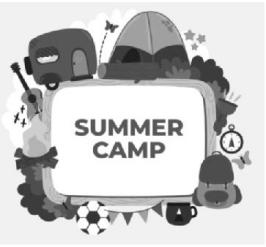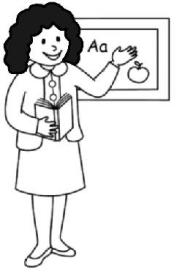Dear Mark,
I am glad to hear that you are coming to China soon. I'd like to give you some suggestions on how to behave properly in China.
When you come to my house,
When you are eating with us,
Before you go outside,
A safe trip to you and I hope to meet you soon!
Best wishes!
Li Hua
If you're riding in a "lift" or an "elevator", or eating "chips" versus "fries", these words all depend on whether you're in the UK or US. Although they both speak English, there are many phrases and idioms that differ between the cultures.
For example, have you ever just not been in the mood to go out with friends?In the US you might say you don't feel like doing that activity, but in the UK you would say, "I can't be asked. "
Maybe you're about to take a test and feel a little anxious. In the US, you might say you are nervous, but in the UK, one could say they are "having kittens". If someone in the UK were feeling they were under pressure, they might say they are "under the cosh".
Even many native English speakers are often confused by the meanings of these terms. Stephanie Stone, a US native, recalls her experience studying in the UK. "People would ask, ‘You're all right?' For months I thought I looked unwell until I realized it just meant ‘How's it going?'. "
If you want to know more about US and UK idioms, you'd better "have a butcher' hook" at some phrase books. It can be quite interesting to find the equivalent(对应的) phrases in your own language.
Last year, I went to a summer camp in the United States with my classmates. It was my first time to go abroad.

I lived with a host family in Los Angeles for five days. My host family was friendly and gave me lots of advice. For example, they said I should say "excuse me" if I have to interrupt(打断) someone or ask for directions.
I also took some classes. They were different from the classes I've had back home. In the US, each class is like a seminar. Students join in groups, speaking freely and creating a cheerful atmosphere(氛围). I had to work hard to learn more vocabularies, so I could better communicate with my international classmates. I used to pay little attention to my word usage(使用), but now I pay more attention.
During my visit, I also went to some famous universities in Boston, New York and Washington, D. C. We learned about the history behind the universities. At MIT(麻省理工学院), we saw lots of names on a wall in the hall. The tour guide told us they were the names of students who had lost their lives during wars. I was inspired(鼓舞) by the fact that they fought for their country.
Everyone has his or her favorite teachers. Their classes often make you enjoy learning. Lori Runkle, my AP English Language and Composition teacher, is my favorite teacher.

Ms. Runkle enjoys getting to know more about students, so I have many chances to talk with her after class. I have always wanted to become a journalist. So she has introduced many helpful journalistic writing skills to me. We also share our opinions on many things.
Although she is my teacher, Ms. Runkle and I are more like friends. For example, she once took me to listen to a journalist's speech. It helped me better understand many current events.
Ms. Runkle is also a great teacher in the classroom. We felt worried at the beginning of the course, but Ms. Runkle tried her best to help us out. In class, Ms. Runkle always encourages us to question everything to keep us active.
I love this part of class best because it requires a lot of deep thinking. And I really have learned a lot from it.
I love Ms. Runkle very much. She not only helps me to get good grades, but she is also a good friend.
A. She often invites me to take part in different activities outside school.
B. Groups of students are often asked to give opinions on current events.
C. I have many teachers at high school.
D. AP English Language and Composition is a really hard subject for second language learners.
E. Ms. Runkle thinks all students should be treated equally.
F. Ms. Runkle used to be a journalist back in the United States.
I had the idea to be an exchange (交换) student in Germany in September, 2019. With tears in my eyes, I said1 to my family. After I finally arrived at the airport in Berlin, I was welcomed by my host(主人) family. They didn't know much about my2 . "I hobble(跛行) a little, but I don't see it as a problem. " I think it's the will that decides3 you can and cannot do, and the disability doesn't matter!
Before I went there, I knew I was going to4 home. But I went!Why?I've been a fighter ever since I decided not to5 my breath when I was born!My mother wrote to my host mom about my trouble. My host supported me greatly.6 e-mail, they also told all my teachers about me.
Everything worked7 . By the end of my year, we were asked to talk about our years. I spoke in front of about 100 people!I was8 my great speech. The next day, some teachers stopped me and said, "Your speech was the best one. "
My year in Berlin was the9 thing I've done so far!I have proved I am a10 and that nothing is impossible!
This is an online discussion group where people can post comments(评论) about a topic. Read the post from the travel forum(论坛).
Answers to All Your Travel | |
Jun Korea Posted:3 days ago | Question:First trip to the USA For my new job, I will travel to the United States next month and meet my American boss. This will be my first trip to the USA. I'm worried about correct business behavior and manners. My boss invited me to his home for dinner. Do you have any advice? |
Su Ming China Posted:3 days ago | Re:First trip to the USA It's a good idea to bring a small gift or something from your country. Don't be surprised if your boss opens the gift right away. In the USA, people often open a gift when they receive it. In China, that is not polite, but it's appropriate in the USA. |
Kathryn America Posted:12 hours ago | Re:First trip to the USA In some countries, such as Korea, Japan and China, it's the custom to remove your shoes before entering a house. In the United States, you usually don't take your shoes off. Once I was traveling in Japan and entered a house with my shoes on by mistake. |
Li Mei is hard-working and she to morning reading.
Don't lose heart. You are new to the work .
A. the B. among C. what D. but E. between F. politely
Eating in Western restaurants is a little different from eating in Chinese ones. It is necessary to understand the differences and to behave .

When you first arrive at the restaurant, you should wait for the waiter to show you to a table. In a Western restaurant, each person usually asks for their own food or dishes and eats they ask for. They don't put all of the food in the middle of the table to share together. One of the biggest differences Chinese restaurants and Western ones is that most Chinese restaurants are noisy most Western restaurants are quiet and people there speak in a low voice. Don't shout to waiter, or people may think that you are rude. If you need help, you should try to ask with your eyes instead of with your voice. It's better not to put up your hand, either.